Walgreens and Target Face Cream Has Chemical Linked to Cancer, Research Claims
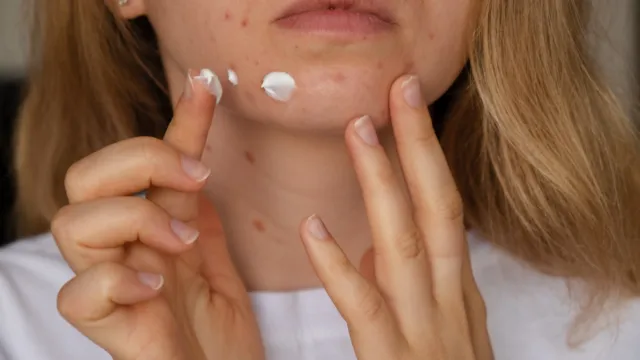
It’s no secret that skincare products can be expensive: If you head into Sephora or a department store, you’ll find balms and moisturizers that can easily run you $100 or more. That’s why so many of us turn to trusted drugstores and big-box retailers, which often carry luxury brands at a discount, alongside more affordable options that work just as well. But according to new research, certain acne face creams sold at Walgreens and Target contain benzene, a chemical that’s been linked to cancer. Read on to find out which brands you might want to avoid.
RELATED: Walmart Shoppers Say Never Buy Great Value “Ever”—Here’s Why.
A lab looked into benzene levels in acne products.
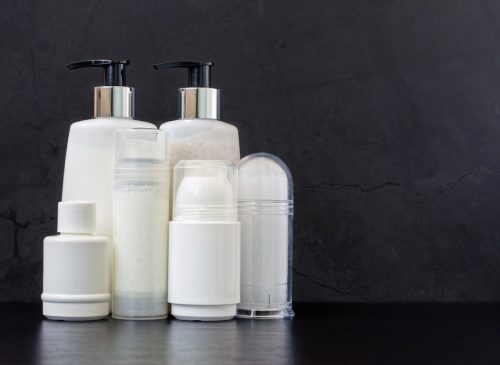
On March 5, independent testing lab Valisure filed a petition with the U.S. Food and Drug Administration (FDA) after investigating acne treatments that contain the carcinogen benzene. The chemical is naturally found in gasoline, crude oil, and cigarette smoke—and it can cause leukemia when someone has long-term exposure to high levels in the air, according to the Centers for Disease Control and Prevention (CDC).
The laboratory tested products—including creams, lotions, gels, and washes—with benzoyl peroxide (BPO) as their main ingredient. The drug is a topical antiseptic used to fight pimples, but it can decompose into benzene when stored above certain temperatures, according to Valisure’s petition.
RELATED: Vitamin D Supplement Is Being Recalled—Serious Side Effects Possible, FDA Warns.
Several products had elevated levels of benzene.
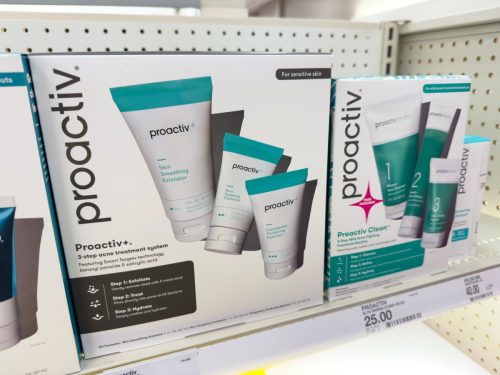
A total of 175 over-the-counter and prescription acne treatments were tested, with 94 found to contain native benzene. According to the petition, the FDA restricts benzene levels to 2 parts per million (ppm), but in some of the treatments, the lab found nine times the permitted amount of benzene, Time reported. Those levels spiked when products were tested for stability at elevated temperatures.
Proactiv 2.5% cream had the highest ppm of benzene, per a graph created by Bloomberg. It contained as much as 1,761 ppm of benzene during stability testing. Target Up & Up 2.5% cream also had elevated levels of the cancer-causing chemical, as did Clinique 2.5% cream; Clearasil 10% cream; and Walgreens 10% cream.
RELATED: Walmart and Target Anti-Theft Measures Could Be “Final Nail in the Coffin,” Shoppers Say.
The FDA received the petition and will be looking into the data.
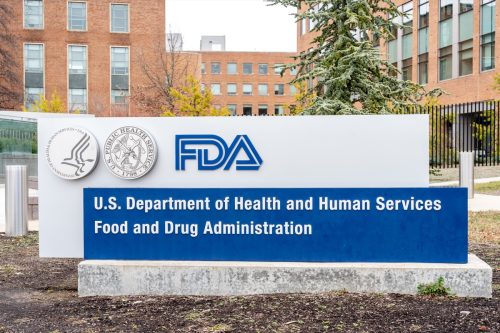
In a statement to Best Life, an FDA spokesperson said the agency will look into Valisure’s data to ensure accuracy before the agency takes action. In Valisure’s petition, the company asks the FDA to “issue a regulation, revise industry guidance, and request a recall and suspend sales of benzoyl peroxide from the US market.”
“The FDA is committed to ensuring drugs Americans use are safe, effective, and of high-quality,” the FDA spokesperson said. “The agency acts on information provided from a variety of sources, such as that provided by Valisure, but such data must be verified as accurate and reproducible before it can be utilized to make regulatory decisions such as recommending product sale suspensions and recalls.”
The spokesperson said that the agency will continue to provide updates to the public, also noting that drug manufacturers are responsible for ensuring the safety and quality of their products.
Valisure stands by its testing.
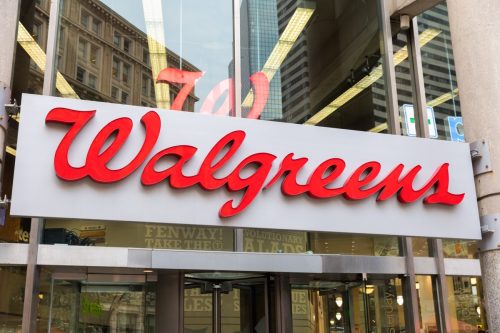
According to Time, the FDA has questioned Valisure’s testing methods in the past, as the company has previously looked into benzene levels in sunscreens and hand sanitizers. However, Valisure stands by its testing methods.
“This discovery of benzoyl peroxide’s fundamental instability and formation of benzene is substantially different than Valisure’s previous findings of benzene in sunscreens, hand sanitizers and other consumer products,” David Light, Valisure’s co-founder and president, said in a statement to CNN, stressing that the recent data “necessitates urgent action.”
Light continued, “The benzene we found in sunscreens and other consumer products were impurities that came from contaminated ingredients; however, the benzene in benzoyl peroxide products is coming from the benzoyl peroxide itself, sometimes at hundreds of times the conditional FDA limit.”
For their part, however, companies are standing by their products.
“Reckitt is confident that all Clearasil products, when used and stored as directed on their labels, are safe,” Reckitt Benckiser Group Plc, the makers of Clearasil, said in a statement to Time. The spokesperson didn’t address the question of whether acne creams were tested for benzene.
In a statement to Best Life, Walgreens said it’s reviewing Valisure’s petition. “We follow FDA regulations and guidelines for Walgreens branded products,” the spokesperson said.
Best Life also reached out to Target regarding Valisure’s claims about specific store-brand products, and we will update this story upon hearing back.
- Source: CDC: Facts About Benzene